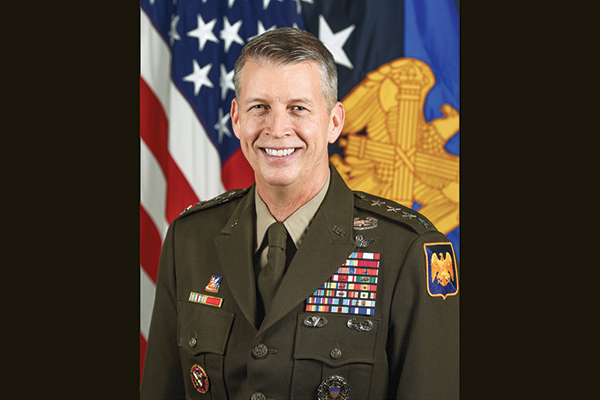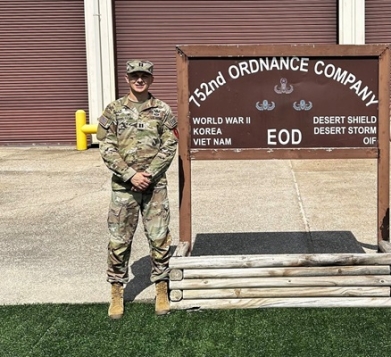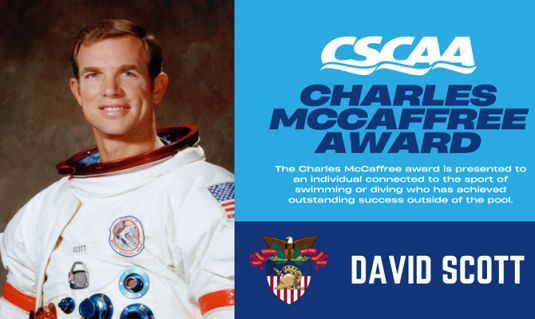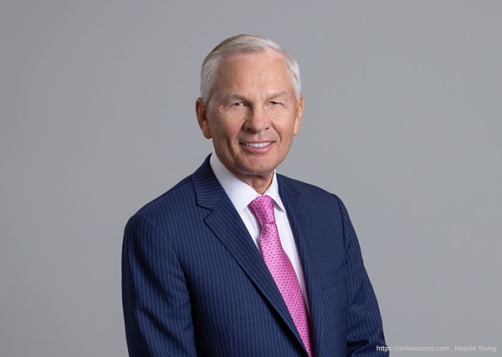By GEN (R) Daniel Hokanson ’86 (ARNG), Guest Writer
GEN (R) Daniel R. Hokanson ’86 (ARNG) served as the 29th Chief of the National Guard Bureau and as a member of the Joint Chiefs of Staff. He previously served as the director of the Army National Guard and as the 11th Vice Chief of the National Guard Bureau. He retired in August after a 38-year active duty and National Guard career.
I grew up in Happy Camp, California, a small logging community where Bigfoot statues outnumber stoplights four to zero. When I was 6 years old, my mom called me and my siblings into the house to watch Neil Armstrong become the first person to walk on the moon. Like so many kids from that era, that became my dream, and I knew I had a lot of work to do.
Through perseverance and determination, I was accepted to West Point. I studied aerospace engineering and commissioned in the Aviation branch. On active duty, I served in air cavalry, attack helicopter and aviation test units and flew every chance I could. I gained combat experience in Operation Just Cause, applied for graduate school, and was selected as a finalist for the astronaut program by the Army.
Spoiler Alert!—I did not become an astronaut. In 1995, in a series of events involving the needs of the Army, a conversation with my branch manager, and the demands of a family with three young children, I decided to leave active duty.
But what I thought was the end of my dream was the start of something bigger. For the past four years, I’ve served as chief of the National Guard Bureau and as a member of the Joint Chiefs of Staff. I didn’t take the direct route to success; instead, I chose an alternate path where decisions and relationships gave me the opportunities to prove myself and ultimately build a 38-year career I’m proud to remember.
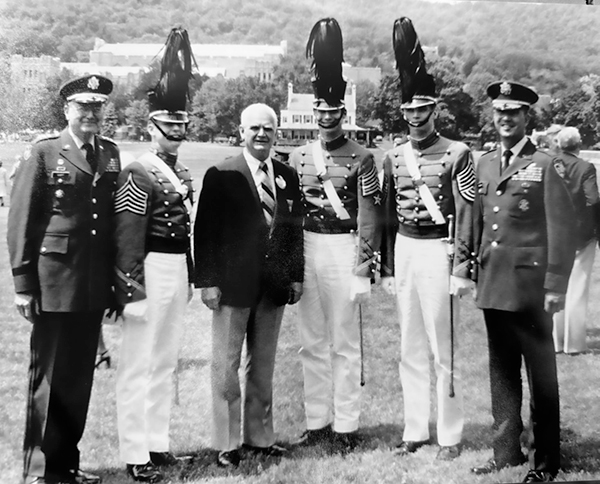
Even though I never became an astronaut, my studies at West Point gave me the opportunity to attend flight school. Being an Army aviator gave me a career in the Army. A career in the Army gave me the most incredible opportunities I’ve had in my life—the closest friends I will ever have, the chance to meet my amazing wife, educational opportunities I only dreamed of, and experiences around the globe with some of the greatest people I will ever know.
One of those people is my mentor, Major General Raymond Rees ’66. I met him in 1996 when my family and I left active duty, moved to Oregon, and joined the Oregon National Guard. I was trying to join its aviation unit, and the state aviation officer was reading my biography in a staff meeting. General Rees did not appreciate the officer reading during the meeting, so he took my bio, glanced at it, and said, “I need a new aide; schedule him for an appointment.”
That meeting—one for which I wasn’t even present—changed the trajectory of my career. General Rees hired me as his aide-de-camp and gave me an immersive education in extraordinary leadership. I learned early that General Rees led by example—in everything. This meant doing the harder “right” over the easier “wrong” at every turn. It meant taking the time—one on one—to mentor and develop others and make a difference wherever one served. General Rees would often say, “Leadership is not about the leader; it’s about the led.”
“I encourage cadets and those who decide to leave the active Army to be flexible in their career plans and open to new possibilities. Opportunities can arise in unexpected places—leading to experiences you hadn’t imagined.”
—GEN (R) Daniel Hokanson ’86 (ARNG)
I also learned to begin every mentoring opportunity by asking him, “Sir, what do I want to do next?” He always had a recommendation, especially if it wasn’t a path I had considered. For example, my career in the National Guard gave me the opportunity to attend Harvard on a War College Fellowship. Halfway through that fellowship, General Rees called to ask if I had any input on my next assignment. “Wherever the organization needs me to serve,” I told him. “If possible, I would like to stay with troops.” I imagined returning to Oregon as the state aviation officer and hoped to continue flying. Instead, I was offered a path in the Infantry: first, an assignment as chief of staff for Combined Joint Task Force Phoenix in Afghanistan; second, as commander of the 41st Infantry Brigade Combat Team in Iraq. My experience in the Infantry set me on the path to flag rank, which ultimately led to a role as a member of the Joint Chiefs.
Taking the “alternate route,” doing the unplanned and unexpected, taught me many things. Above everything else, I learned the importance of mentorship and of taking care of people. All of us who serve, work with someone’s hero, and we should treat him or her as such. When we take time to mentor others, we leave a bit of ourselves behind; when we invest in their success, there is no limit to where our influence can go.
I encourage cadets and those who leave the active Army to be flexible in their career plans and open to new possibilities. Opportunities can arise in unexpected places—leading to experiences you hadn’t imagined. If you have the courage and the faith to take calculated risks and pursue alternate routes, the roads to service and success are wide open.
Photo 1: GEN (R) Daniel Hokanson ’86 (ARNG). Photo 2: Standing on the Plain (L to R) in 1986: LTG Willard Scott Jr. ’48, 52nd Superintendent; CDT Thomas Brechbuhl ’86, Deputy Brigade Commander; GEN (R) William Westmoreland ’36, 45th Superintendent; CDT Timothy Knight ’86, USCC First Captain; CDT Daniel Hokanson ’86, Brigade Adjutant; and BG Peter J. Boylan Jr. ’61, 60th Commandant of Cadets.
What do you think? Click here to answer three questions.

